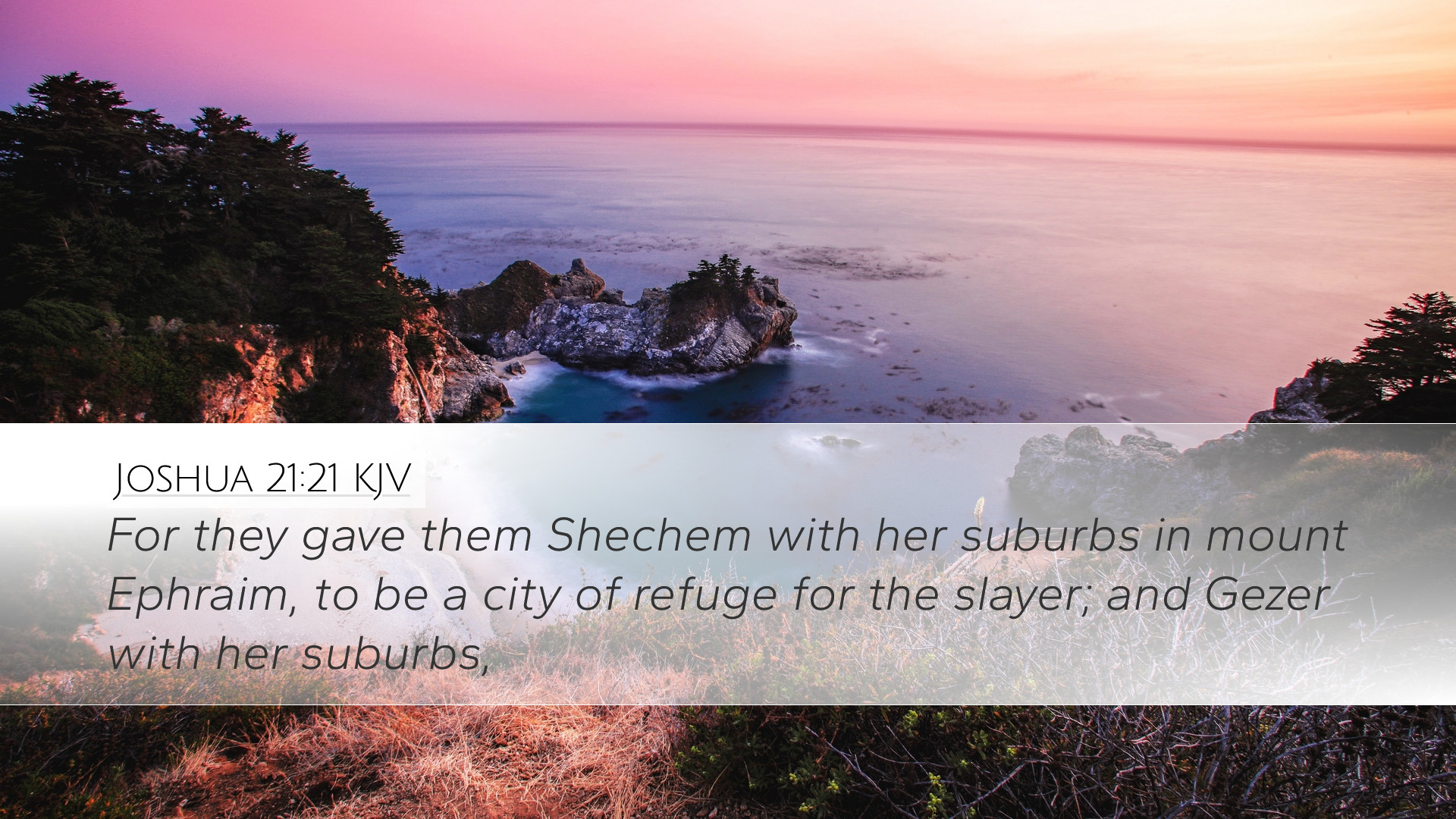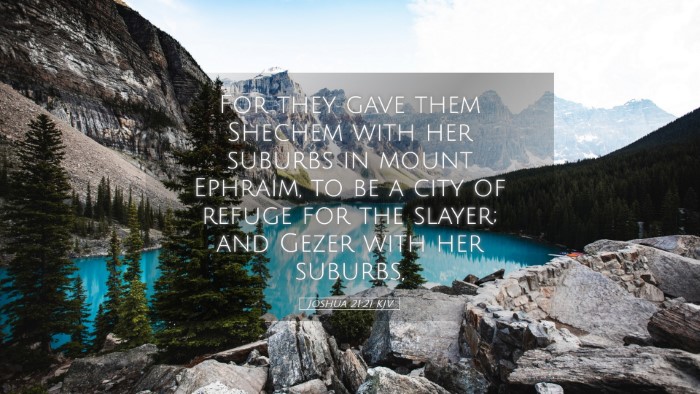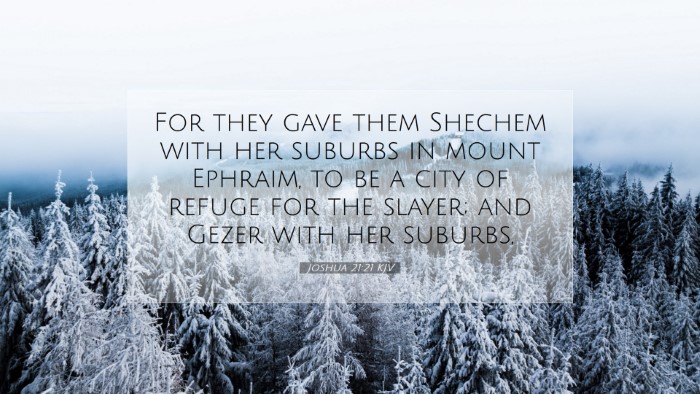Bible Commentary on Joshua 21:21
Verse: "For they gave him the city of Arba, which is Hebron, the father of Anak, with the suburbs thereof, for a possession." (Joshua 21:21)
Introduction
The allocation of cities to the Levites highlights the significance of these cities not only as physical places of refuge but also as spiritual centers for worship and the community of Israel. Joshua 21:21 details the giving of Hebron (formerly known as Arba), a city profoundly tied to the patriarchal narratives and a significant location for the Covenantal promises of God.
Historical Context
Hebron, with its ancient roots, serves as a crucial city in the history of Israel. Revered for its association with the patriarchs Abraham, Isaac, and Jacob, it also represents the Herculean challenges faced by Israel, including its connections to the Anakim, who were known as giants (Numbers 13:33).
Matthew Henry’s Perspective
- Matthew Henry emphasizes the significance of Hebron as a city that had originally belonged to Abraham and later became the inheritance of Caleb. He recognizes the spiritual dimension attached to cities given to the Levites, noting they were not merely physical territories but were endowed with the purpose of nurturing the worship of Yahweh.
- Henry reflects on the poetic justice of Hebron becoming the inheritance of Caleb. Having demonstrated unwavering faith, Caleb’s reward was a city that held deep spiritual heritage, suggesting to the reader that faithfulness is richly rewarded in God’s kingdom.
- He also mentions that the Levites did not receive lands as other tribes, reinforcing their role as spiritual leaders who were wholly devoted to God’s service.
Albert Barnes’s Insights
- Albert Barnes provides a thorough examination of the city’s significance. He points out that Hebron is sometimes referred to in scripture as “the city of the fateful,” alluding to its importance in the narrative of faithfulness to God’s promises.
- Barnes also discusses the strategic location of Hebron in the territory of Judah and how its selection for the Levites underscores the importance of their ministry amid the Israelites. It acted as a spiritual stronghold against the surrounding pagan influences.
- He substantiates that the Levites were provided with cities that not only functioned as places of residence but also served as centers of teaching and worship within the nation.
Adam Clarke’s Commentary
- Adam Clarke delves into the etymological background of Hebron and highlights its duality of being a city of refuge and a city of inheritance, suggesting a deep metaphorical meaning for the spiritual journey of believers.
- Clarke notes the fateful heritage of the inhabitants, the Anakim, who posed a fearful challenge to Israel. This narrative of reclaiming territory from giants serves to encourage believers to confront fears and challenges through faith in God.
- He emphasizes that the promise to Caleb regarding Hebron faced temporal and spiritual fulfillment, urging believers to remain steadfast as they await the ultimate realization of God’s promises to them.
Theological Implications
Joshua 21:21 serves as a reminder of the promises of God to His people, interweaving themes of faithfulness, promise fulfillment, and divine inheritance. The city of Hebron represents not only a geographical location but a rich intersection of faith history, which can significantly impact both personal and communal understanding of faith.
The Role of the Levites
The special provision made for the Levites signifies the importance of spiritual leadership and pastoral care. Their cities were not just homes; they were meant to sustain a lifestyle of worship and instruction. This passage reminds modern readers of the role of church leadership in offering guidance and fostering community among believers.
Courage and Confrontation with Fear
The historical context of Hebron as a site associated with the Anakim allows for deep theological reflection on confronting fear with faith. When God calls His people to take possession of His promises, they often face overwhelming challenges. This serves as a lesson for today’s believers about the nature of faith in the face of adversity.
Conclusion
As we reflect on Joshua 21:21, we see the convergence of heritage, faithfulness, and community. The legacy of Hebron extends beyond its physical boundaries into spiritual truth, encouraging believers to pursue God’s inheritance amidst challenges, with the assurance of His steadfast promises. The insights provided by these renowned commentators enrich our understanding, making this verse a cornerstone for both individual and corporate faith journeys.


